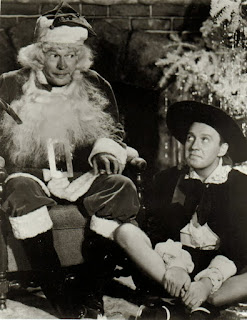This appears to be one of those stories where the writer asked a number of celebrities being interviewed some side questions, then banked them for a compilation feature piece for later publication.
This story appeared in papers in 1948. As it was written on the East Coast, it is devoid of opinions of West Coast radio comediennes or comic actresses, such as Gracie Allen, Cass Daley, Eve Arden, Lucille Ball, Marian Jordan and many others (this is not an excuse for you to comment “You forgot {insert name here}.”).
There is validity in the points raised. People will listen to old radio shows or watch aged animated cartoons and won’t laugh because they don’t get the references. I imagine gags on Bob Hope’s shows about ensigns or top sergeants went over big with his military audiences in World War Two, but they do nothing for me.
I chuckle about the columnist’s disdain for Henry Morgan. Morgan expressed disdain for women, especially ex-wives who wanted his money.
Cynthia Lowry spent years in Los Angeles reviewing television shows, but she was no fluff reporter. She was assigned to France by the A.P. during the war and got a first-hand look at the horrors of the Belsen concentration camp in Germany in March 1946. She died in 1991.
Comedians Differ on Why Women Laugh, or Don't
By CYNTHIA LOWRY
(Associated Press Newsfeatures)
New York, June 26.—Women laugh at jokes because they have sense of humor.
Just a minute, now, let me finish. This isn't my opinion. I'm just reporting it. It's what some of America's top comedians think. Except Henry Morgan: He thinks women just laugh at things men don't think are funny. I don't think Henry Morgan is funny.
A couple of lady comics think women laugh quicker, sooner and harder. Maybe you think they are prejudiced, so we'll amplify that later.
Jack Benny does not think questions about women's sense of humor calls for gag answers.
"Men and women respond to about the same things in the way of humor," he said. "I'd go a little heavier in the sex angle with an audience of women. But not too rough. That would embarrass them."
Fred Allen, another veteran of vaudeville, puts it somewhat differently. He thinks the world is quite simply divided into people with a sense of humor and people without a sense of humor.
"If they have one, they laugh," said, "If they don't, they don't. But it isn't question of whether it's woman or a man.
"Women will laugh at gags about styles or stocking shortages," he continued thoughtfully. "Men will laugh at golf jokes, gags about horse racing. But they're just laughing at things they know about. Women don't play the horses much.
 "A college professor will snicker it someone trips over some ivy by a university building. A garbage man will laugh if someone slips in the swill. They're both laughing at basic thing—only in settings they are familiar with. But they laugh because they think it's funny—not because they are men.”
"A college professor will snicker it someone trips over some ivy by a university building. A garbage man will laugh if someone slips in the swill. They're both laughing at basic thing—only in settings they are familiar with. But they laugh because they think it's funny—not because they are men.”Jack Haley, one of the stars of "Inside U. S. A.,” agrees that it is familiar things that make people laugh. But he thinks women are more likely to laugh at "light things" than men.
"Men like heavy humor you can put your teeth in," he says. "Women go for more frivolous stuff. There's no better, more responsive audience in the world than bunch of women—all women."
He thinks there are many men more comedians than women because "humor is an aggressive thing." He didn't explain that.
Paul Hartman, a master of humor in dancing and now starring in "Angel in the Wings," said women laugh as hard as men, but are likely to laugh at different jokes.
"For instance, women in an audience will always go for the classic burlesque: A man pantomiming a woman adjusting her girdle or trying to find an unfastened garter. We've got a sketch in our show built around some military slang, but it never goes over to a matinee audience. Women just don't understand military slang."
Then there's this Henry Morgan.
"I've often noticed women laughing," said Morgan, "but usually only at the minor calamities that befall men. If women had sense of humor why should they on being women?"
Gracie Fields thinks men and women laugh equally hard at the same jokes—it they're familiar with the subject matter.
"But," she adds, "women catch on to a gag faster every time."
Nancy Walker, star of the musical comedy hit "Look Ma, I'm Dancin'," is the summer-upper.
"Dames," she said, "are the quickest, smartest people in the world, but they spend most of their lives trying to keep men from knowing it. Just about the only time they don't have to cover up and let their hair down is when they're all together at matinee.
"Then they'll laugh and whoop louder than anything you ever heard at anything that strikes them funny. They get the gags quicker. But just at matinees. They don't act that way when they go to the theater with their men in the evening."































